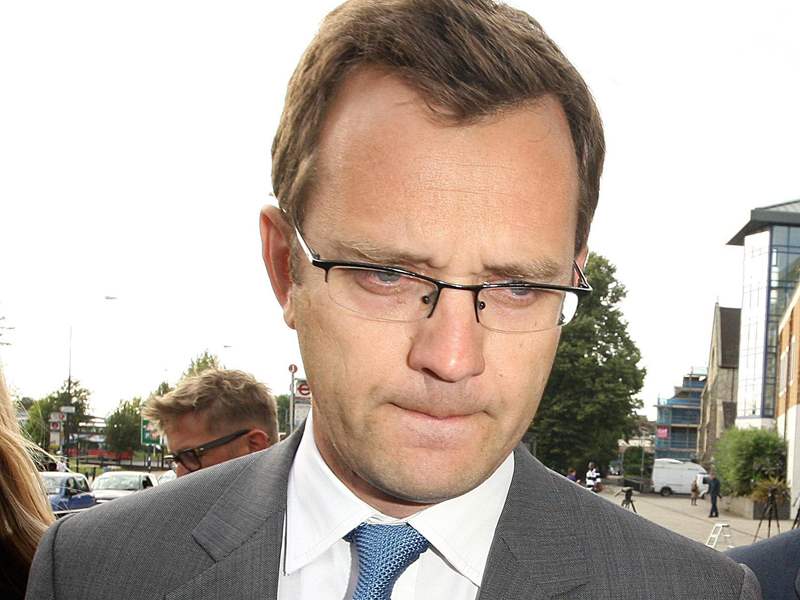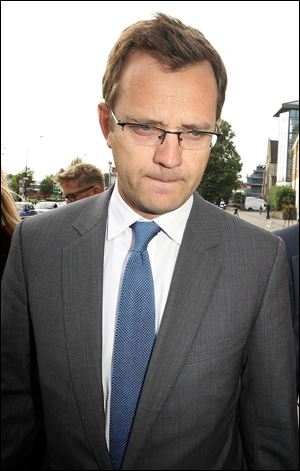
Questions raised over security clearance of British PM's former communications chief
7/21/2011
AP

Andy Coulson, former Downing Street communications chief and previously News of the World tabloid editor, in London earlier this month.
LONDON -- Prime Minister David Cameron's former communications director did not have a top-level security clearance, which spared him from the most stringent type of vetting, a published report said Thursday.
Andy Coulson, a former editor of the News of the World, the paper at the heart of a phone hacking scandal, would have been vetted when he went to work for Cameron once he became prime minister last year. Coulson resigned in January as more questions arose about the newspaper.
"The disclosure will fuel suggestions that Cameron failed to take proper steps to check allegations that Coulson had been involved in illegal behavior at the News of the World," The Guardian's report said.
A spokeswoman at Cameron's office said the level of vetting depended on whether someone had access to top secret material, and she refused to be drawn on why Coulson didn't have that level of clearance.
"We don't comment on individual vetting," she said, speaking on condition of anonymity in line with government policy.
Cameron was asked several times about the issue in the House of Commons on Wednesday.
"He was vetted. He had a basic level of vetting," Cameron said. "He was not able to see the most secret documents in the government."
When the question was raised again, Cameron said, "I feel that a number of honorable members are looking for some sort of secret behind a curtain that simply is not there."
The Cabinet Office said all employees in the prime minister's office at No. 10 Downing Street have the second-highest level of clearance.
They would be subject to a check of company records including personal files, and a check of credit and of MI5 records. An interview can be required if any security concerns are unresolved.
Regardless of the vetting, it was well known in 2007 when Cameron, then opposition leader, first hired Coulson that he had recently resigned as editor of News of the World following the conviction of two employees for phone hacking.
The Conservative Party had employed a company to vet Coulson in 2007, Cameron said Wednesday, but he declined to identify the company.
Helen Goodman, one of the opposition Labour Party members who asked questions, said "one can but speculate" why Coulson would not have been subjected to the highest level of vetting.
"Your guess about the prime minister's motives is as good as mine, but I certainly haven't had clear answers from him so far," Goodman told The Associated Press.
Alistair Campbell, Tony Blair's communications director, and others who held that post in recent Labour government's had the higher-level top secret clearance.
The hacking scandal has received feverish attention since July 4 when it was revealed that someone at News of the World had hacked the phone of 13-year-old murder victim Milly Dowler at a time when police were still searching for her.
The temperature cooled a bit on Thursday, with Parliament closed for the first day of its summer recess, but the investigation appeared to be intensifying.
London's Metropolitan Police said Wednesday that it was assigning 15 more officers to help the 45 already involved in the investigation.
News Corp., meanwhile, said it had instructed the law firm of Harbottle and Lewis to answer police questions about emails and other documents from an internal investigation at News of the World in 2007. That inquiry said found no evidence that Coulson was aware of hacking by reporter Clive Goodman and private investigator Glenn Mulcaire. Both were sentenced to prison for hacking into phones of the royal household.
Harbottle and Lewis had said there was no evidence of wider criminality at the newspaper.
READ MORE: AP STORY